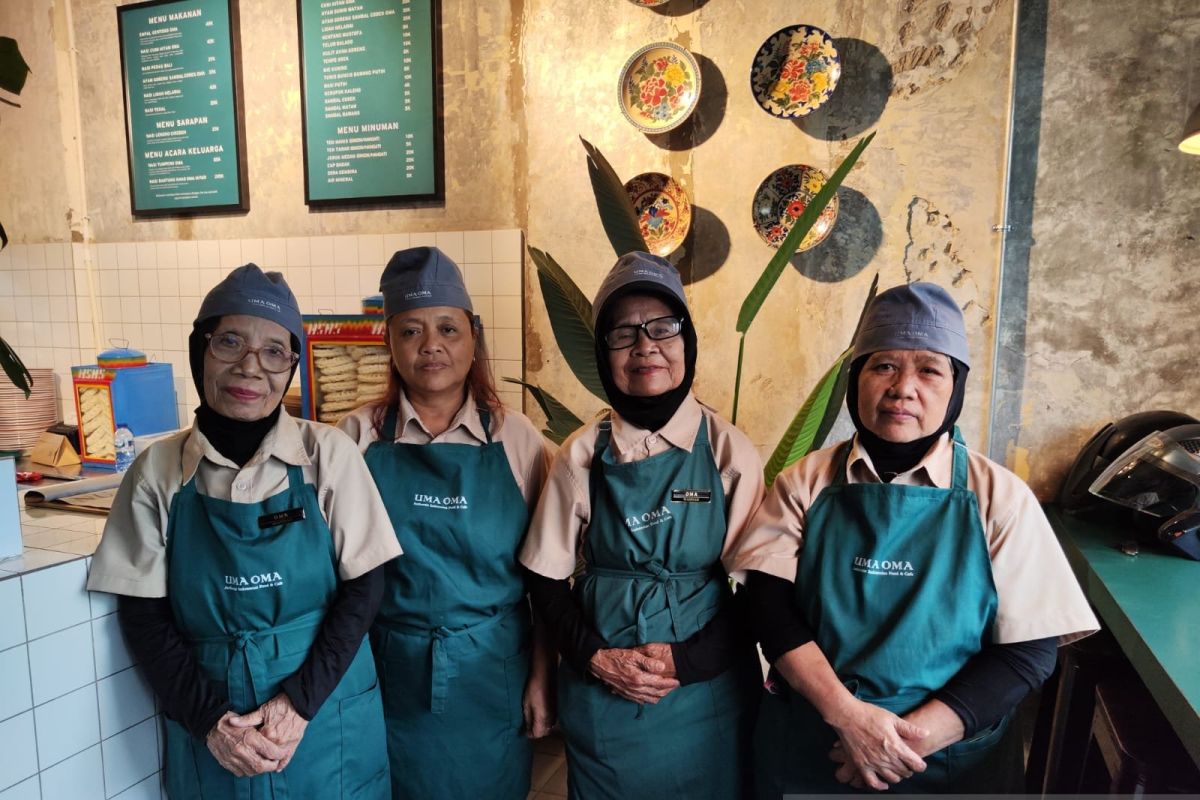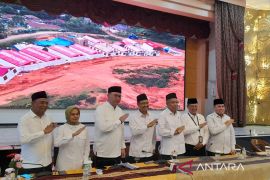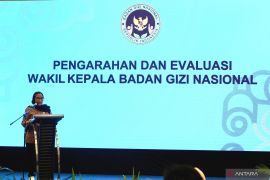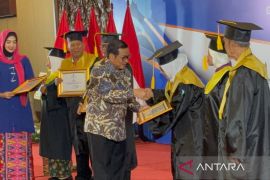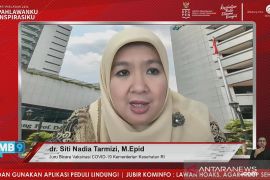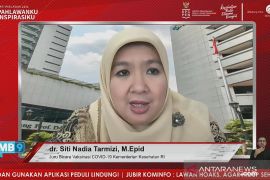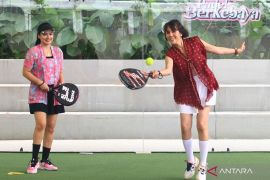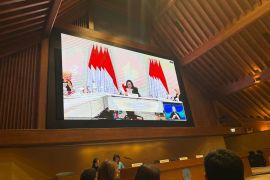Her warm smile and greetings welcome customers since the cafe opens at 10 a.m. local time. When visitors leave the cafe, she will thank them and ask them to come back later.
Rustinah is one of the four older women working at the Uma Oma Cafe that serves Indonesian cuisine and is also a coffee place.
At the cafe, Rustinah and Wasinah, 78, are in charge of opening the door for visitors as well as escorting visitors leaving the cafe.
The other two older workers, Sustiati and Ida, are in charge of dishwashing in accordance with their work time.
Before going to work, Rustinah spends most of her time watching TV as well as doing several household chores, such as laundry and ironing clothes, a routine she has followed for almost all her life.
After the demise of her husband, she became the main provider for her three children, who were able to finish high school due to her hard work.
Her children are now married and have given her eight grandchildren.
Rustinah was once a garment factory worker for dozens of years, during which she also worked a second job as a domestic worker, doing laundry and ironing from 9 p.m. until midnight.
Wasinah too was the sole breadwinner for her family for 40 years. Her late husband passed away when their seven children had not even entered adolescence.
Since the 1980s, she has been selling rempeyek (Indonesian crackers) and food around the Blok M Terminal. With the money that she made, her children were able to complete high school studies.
Although none of her children went to college, she is grateful that two out of her 25 grandchildren are currently studying in higher education institutions.
Wasinah still sells rempeyek. She prepares the dough from three in the morning and fries all the rempeyek that the customers ordered before going to work.
Rustinah and Wasinah certainly did not expect that life would lead them to a different routine.
The cafe owner, who is affiliated with the foundation where the two belong, had the idea of empowering older adults as his employees.
They work for seven hours per day, with the first shift from 10 a.m. to 5 p.m. local time, while the second shift is from 1 p.m. to 8 p.m. local time.
Their tasks are simple, as they only receive visitors at the door and extend a welcome greeting and a thank you when they leave.
The cafe owner ensures that the work is not physically demanding, so that his older workers do not get tired. They are also not allowed to go upstairs, considering that the cafe has three floors.
The cafe was intentionally employing older adults, who are still productive and active, to proffer a sense of dining at a grandma's house with homemade food.
The owner apparently has a different concept from the usual food business, which offers luxurious interiors as well as facilities that accommodate the needs of young people, such as free internet and several power outlets for charging mobile phones.
The older women, who are often affectionately called "oma," are an attraction for visitors, especially for those longing for a grandmother who may have passed away.
One of the visitors even admitted that she regularly visits the cafe at least once a month just to chat with Rustinah or Wasinah.
Adila, 23, said she was happy to know that the "oma" were still healthy and working to serve visitors when she returned to the cafe.
For the older women, the visitors, most of whom are young people, remind them of their children and grandchildren who do not live under the same roof as them.
Perhaps, only on Eid al-Fitr day can they meet all their children and grandchildren.
Rustinah and Wasinah also have family-like relationships with the chefs and other workers, and they share stories and advice.
The cafe owner also allows the older workers to bring home food served at the cafe, such as empal gentong (curry-like beef soup) and stir-fried beef tongue.
After three months of working in the cafe, they felt fitter than staying at home. Although they have to open and close the door when there are visitors, the two never feel tired even when the cafe is busy.
Preventing dementia
Rustinah and Wasinah admitted that they never felt bored while working at the cafe and even the working hours seemed to pass by quickly, as they enjoyed their new job.
In fact, during their days off, they find their bodies to be more sore, as they spend more time sleeping and sitting.
It is not without reason that older adults can be fitter when working because of the positive effects resulting from emotions and satisfaction from the work they do.
A study from Harvard Medical School in 2022 shows that actively working until old age can lead to a longer life and reduce the risk of chronic diseases that cause premature death.
The study also shows that working longer is beneficial for older adults as long as the work is not physically demanding. Older adults, who continue to work, are also at minimal risk of dementia, which affects one's thinking and behavior.
This is because the routine that older adults perform makes the brain always work actively. With a healthy diet and adequate stress management as well as socializing, older adults can stay healthy to carry out their activities.
Both Rustinah and Wasinah do not show signs of dementia. They are quite fluent in telling stories and have no difficulties remembering every moment they have experienced.
For them, the cafe is an escape from the pangs of loneliness their experience since they cannot see their children often, as they already have their own families.
Their fate has brought them a job at a cafe that is bustling with young visitors day and night. Their role as grandmothers in the cafe is validated when visitors say, "Thank you, oma."
Related news: Deputy MPR speaker urges youths to care for older adults with dementia
Related news: Early detection vital to prevent dementia: expert
Related news: Early detection needed to prevent severe dementia: neurologist
Translator: Mentari Dwi, Raka Adji
Editor: Azis Kurmala
Copyright © ANTARA 2023
